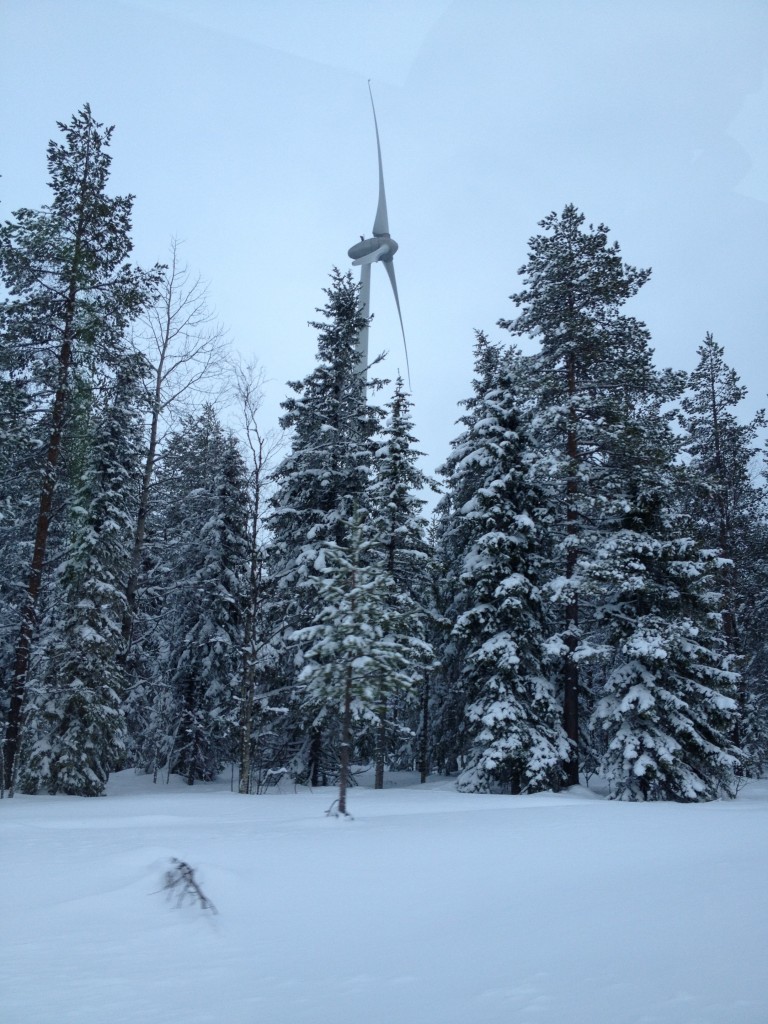Search Results for Tag: protest
Exploring the North – Not in my backyard
Let’s start with a quick survey: Are you in favor of fewer carbon emissions? Would you opt for renewable energy? Do you support the expansion of renewables? I guess we all agree on this, right? But what would you say to having a wind turbine placed right next to the flowers and trees in your garden? Would you be okay with the presence of a high voltage power line right over your roof? That’s where agreement normally ends. More renewables, yes – but not in my backyard.
That’s a major problem many countries promoting energy transition have to confront at some point. And that’s the case in Sweden as well. Swedes simply love their nature. Many parts of the sparsely-populated country are natural reserves and authorities usually rank their preservation higher than economic profit. This attitude is so pervasive that nobody even thinks of questioning it. The country – which meets 50 percent of its energy needs from nuclear power and the other half from hydro power – has great potential to increase its water power capacity. It’s even exporting the energy.
But at the same time, even energy companies like Vattenfall, already operating several water power plants, don’t attempt to build new ones as they know there is likely to be resistance to new plants that “would simply spoil the landscape.”
However, Europe’s largest on-site wind park is to be built in Sweden. By 2024, Swedish company Svewind plans to build 1,100 wind turbines which together are meant to meet 13 percent of Sweden’s energy demand. So far, 12 turbines are up and running. The ridge 60 kilometers away from Piteå has “the best wind conditions you could possibly have”, says Kenneth Bergquist who is responsible for setting up Svewind’s turbines. A large overhead power line is also located close by so that the energy produced can be further distributed. 24 additional turbines are planned on the site, permission has been granted for 340 in total. But the company has already run into trouble with its first few turbines though they are located in an area, where “very few people live”, says Bergquist.
But the ridge with its clump of turbines is located on the route that reindeer herds normally take. “We don’t know how the reindeers react”, says reindeer herder Patrick Lundgren. It might be that they hide in the forest and don’t dare to pass by or deviate from the usual routes, he says. “It took four to five years for the government and the company to understand our problem. But now we have found a solution. We don’t have to first prove that there is a problem anymore. We talk to each other and have to agree.” The reindeers now have a safe harbor apart from the ridge and the company has pledged financial support for additional food if needed. “May be in 10 years the animals get used to the turbines,” Lundgren says.
What do you think? Should people just get used to turbines and powerlines in their immediate surroundings and accept it as necessary if they want renewable energy? Would you leave your home and move to another place?
Hit the buttons to beat the “Mermaid Death Squad”
What sounds like a name for a pretty cool comic metal band is a new online game created by Greenpeace. It’s meant to create awareness about unsustainable tuna fishing. It sets you up against some real nasty-looking, dangerous creatures who want to put you in a tuna can. Greenpeace gives you the chance to battle some well known canned tuna brands – Chicken of the Sea, Bumble Bee and Mermaid – or at least iterations of their mascots. And make sure you don’t get caught.
The idea behind this pacman-like arcade game is obvious. The industrial tuna fishing industry’s big ships catch a lot more than just tuna. Sharks, manta rays, turtles and several marine creatures are caught up and killed every day in the fishing nets. The canned tuna brands mentioned above are the bad guys who use Fish Aggregating Devices (FADs) and longlines to kill an estimated 100,000 tons of bycatch, the games explains.
So it’s up to you to help. Choose to be a shark, manta ray or turtle racing down the aisles of a stylized supermarket to free the tuna from the cans before the bad guys catch you. If you lose, it’s literally game over for the ocean.
A loving lament for a dwindling resource
This little tune sounds like a hymn for today’s discussion about the use of fossil fuels, but it’s more than 30 years old. The British punk-rock band Newton Neurotics released the song as their second single. It’s possible to see the song as a reaction to the second oil crisis of 1979 when the Iranian revolution and the Iran-Iraq war caused a stop of the oil production in both countries and oil prices went through the roof. But it is still very much up to date. Have a look at the lyrics:
“What’s gonna happen when the buses don’t run / and what’s gonna happen when the winter comes / what are you / when the oil runs out?”
or
“Are you prepared for such a drastic change of life style / you say “yeah” I don’t believe you,look at your home / the things that you own, the job that you work in / they all could go.”






Feedback